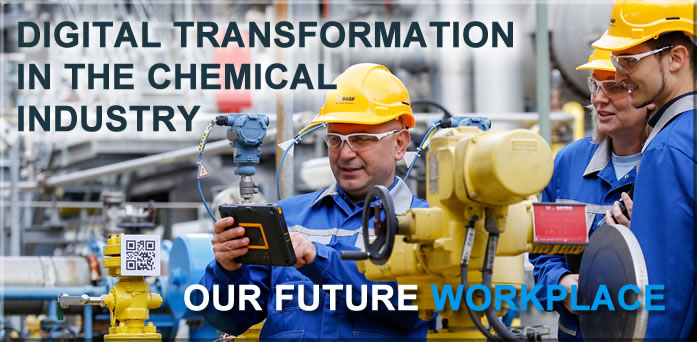SD Chemical
Social partners
- Workers' representatives: industriAll European Trade Union
- Employer's representatives: European Chemical Employers Group (ECEG)
The current digitalisation project website:
Social dialogue in this sector covers activities defined by NACE (Rev. 2) codes 20, 21 and 22:
- manufacture of chemicals and chemical products
- manufacture of basic pharmaceutical products and pharmaceutical preparations
- manufacture of rubber and plastic products.
The EU chemical sector employs over 3.5 million people (about 1% of the EU workforce) (Eurostat, 2014 Labour Force Survey data) in about 95 000 companies, most of them SMEs.
Despite the economic crisis which started in 2008, employment rates in the chemical sector have held up reasonably well in terms of both direct and indirect employment. Although the sector has lost its leading role worldwide, it remains key to the European economy's export position.
Challenges include slow demand growth in Europe, high demand growth in Asia, higher production costs and a highly regulated environment. The main regulatory challenge is implementing a workable, cost-effective system for the Registration, Evaluation and Authorisation of Chemical substances (REACH).
Key areas and projects
The employers' and workers' organisations represented on this committee are currently focusing on:
- competitiveness, RDI (research, development and innovation) and change management, with particular emphasis on the impact on the industry of digitalisation and sector-specific policies, such as REACH and nanotechnology policies
- occupational health and safety
- sustainable employment and career development in the light of demographic change
- training and lifelong learning, including identifying future skills needs and skills mismatches
- disseminating the Framework Agreement on Competence Profiles at national and company level
- following up and contributing to industrial, energy and climate policies
- putting the committee's Roadmap for 2015-2020 into practice.
(copied from EC - Sectoral social dialogue)
(Image:BASF SE -
Chemist Janak Kafle and chemical lab technician Lucas Montag check
physical parameters during the manufacture of graphene based inks. BASF
and the Max Planck Institute for Polymer Research Mainz have been
jointly operating the Carbon Materials Innovation Center on BASF’s
Ludwigshafen site since September 2012)
